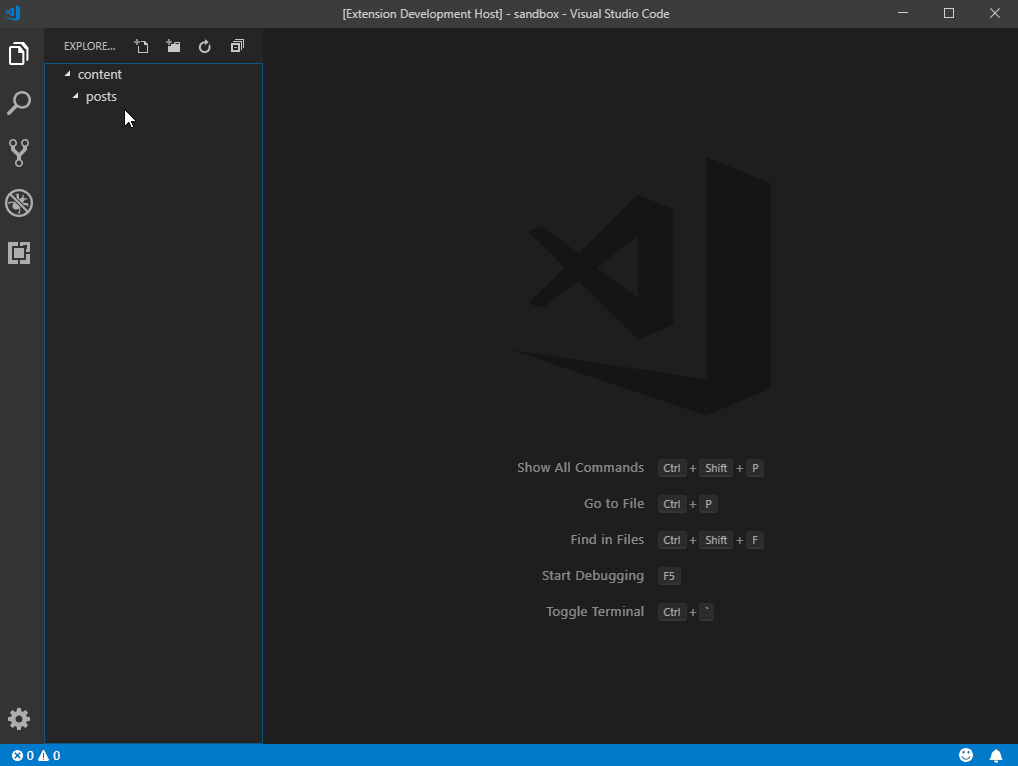Ecosyste.ms: Awesome
An open API service indexing awesome lists of open source software.
https://github.com/timdeschryver/new-blog-post
https://github.com/timdeschryver/new-blog-post
Last synced: 3 months ago
JSON representation
- Host: GitHub
- URL: https://github.com/timdeschryver/new-blog-post
- Owner: timdeschryver
- License: mit
- Created: 2019-06-02T16:39:24.000Z (over 5 years ago)
- Default Branch: master
- Last Pushed: 2022-06-25T00:52:07.000Z (over 2 years ago)
- Last Synced: 2024-10-04T13:31:22.478Z (3 months ago)
- Language: TypeScript
- Size: 359 KB
- Stars: 20
- Watchers: 2
- Forks: 5
- Open Issues: 5
-
Metadata Files:
- Readme: README.md
- Changelog: CHANGELOG.md
- License: LICENSE
Awesome Lists containing this project
README
# 📝 New Blog Post
> Create a new blog post with ease

## Commands
| Command | Description |
| -------------------- | --------------------------------------------------- |
| 📝 New Blog Post | Creates a markdown file based on the template |
| 🚀 Publish to dev.to | Publishes the blog post to [dev.to](https://dev.to) |
## Settings
| Property | Description |
| ------------------------ | --------------------------------------------------------------------------------------- |
| `post.template` | Can have the values: `dev.to`, or an obsolete path to your own template |
| `post.templateVariables` | Define your own template, [more info](#Template-Variables) |
| `post.publishToken` | Token to publish to dev.to, the token can be created at https://dev.to/settings/account |
## Template variables
### Define custom variables
You can define your own variables with the `templateVariables` variable, which is an object.
The key will be used to find the variable tag. To create a variable tag in the template surround it with `${}`, for example `${author}`.
The value will be evaluated with the `eval` function. This has the advantage that we have the possibility to define "dynamic" variables, but has as disadvantage that simple string values have to be surrounded with quotes.
```json
"post.templateVariables": {
"author": "'Tim Deschryver'",
"timestamp": "new Date().toISOString()"
}
```
### Predefined template variables
| Variable | Value |
| -------------- | --------------------------------------------------------------- |
| `${timestamp}` | The current timestamp in ISO format, `2019-06-02T19:03:43.412Z` |
| `${published}` | `false` |
| `${tags}` | Empty |
| `${cursor}` | Where the cursor will be at after creating the file |
## Default template: dev.to
The default template that will be used, is the `dev.to` template and looks as:
```md
---
title:
published: false
description:
tags:
cover_image:
canonical_url:
---
# Post title
Post body
```